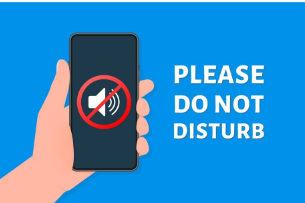Social media: Are you addicted?
January 21, 2025
Addictions to “scrolling” are rising among social media users, particularly teenagers and young adults. As the name implies, individuals who continuously swipe through social media for long periods might have scrolling addictions. 
Humans are social creatures, so seeking rewards to produce happiness is natural. Scrolling through our social media feeds presents us with endless content that satisfies our brains. Additionally, if we ever fear missing out on new or older missed content, the option to “refresh” is always there. Any time we interact with a post, it gives us a temporary dopamine boost. Dopamine is one of the brain’s “happiness” chemicals, and it’s what allows us to feel rewarded. It’s this rush of happiness that makes scrolling addictions so easy to fall into.
Although scrolling through social media can feel good at the moment, it takes away time from important tasks like assignments, studying, socialization, and work. It can also create feelings of envy towards content creators who appear to have “better” lifestyles than us. Moreover, many people don’t realize they have a scrolling addiction until they check their screen time statistics or notice how often they have to charge their phone battery during the day.
Recognizing these problems and their impacts on our overall health and well-being is the first step to developing a healthier relationship with social media. Here are a few ways you can find the balance between social media and the demands of your daily life.
Set app-timers and enable screen time notifications
Setting limits to social media apps and overall phone usage effectively filters out unnecessary and unhelpful content. If you only allocate a small amount of time to social media, you’ll naturally only seek out content that makes you feel good.
Delete social media apps during exam periods or turn on Do-Not-Disturb
 Limiting access to social media apps will decrease the likelihood that you spend unnecessary time on your phone. There will be fewer notifications that appear on your phone screen, which will keep you laser-focused on your goals and dreams.
Limiting access to social media apps will decrease the likelihood that you spend unnecessary time on your phone. There will be fewer notifications that appear on your phone screen, which will keep you laser-focused on your goals and dreams.
Remind yourself that social media doesn’t always tell the whole story
Overthinking how well put together an influencer may discourage you from continuing to work towards your academic goals. Remember that many people online only show the highlights of their lives and that their posts may not accurately represent their everyday lives.
These tips and some self-reflection about your social media use can help you develop a healthier relationship with social media and might encourage your friends to do the same!






